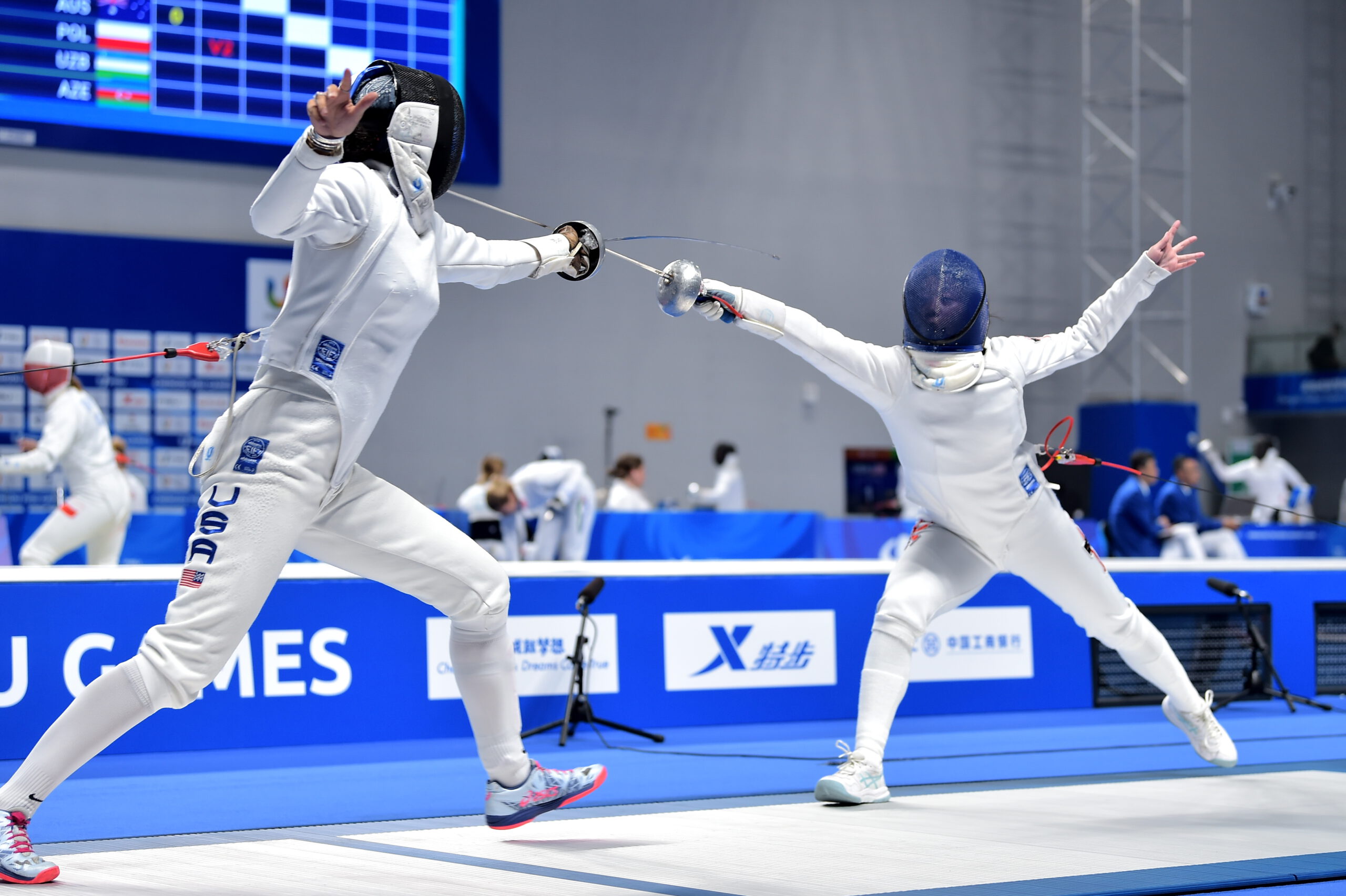| Advance |
Taking a step towards one’s opponent. |
| Beat |
Sharp tap on the opponent’s blade to initiate an attack or provoke a reaction. |
| En Garde |
Position taken before fencing commences. |
| Engagement |
Contact between the fencers’ blades – often as the prelude to an attack. |
| Feint |
A false attack intended to get a defensive reaction from the opposing fencer, thus creating the opportunity for a genuine attack. |
| Fleche |
Explosive, running attack. |
| Flunge |
Action unique to saber – a combination of a lunge and a fleche. |
| Guard |
Part action in which a fencer blocks his opponent’s blade. |
| Lunge |
The fencer launches themselves at their opponent by pushing off from the back leg. |
| On guard |
The stance adopted in fencing. |
| Parry |
Defensive action to deflect an opponent’s attack by opposing forte to opponent’s foible. |
| Point‐in‐Line |
Action in which the fencer, who is generally out of attacking range, points their weapon at their opponent with their arm fully extended. A fencer who establishes a point in line has right‐of‐way, and their opponent cannot attack until they remove the blade from line by executing a beat. |
| Pool |
The grouping of fencers or teams in a competition. |
| Quarte |
High line, semi-supinated guard on the non-sword-arm side. |
| Quinte |
Low line, pronated guard on the non-sword- arm side at foil and epee; and a high guard at sabre to protect the head. |
| Recover |
The return to the en guarde position after lunging. |
| Right of way |
The decision criterion used to determine which fencer receives the touch, or point, when both fencers land a hit within the same short time-frame. |
| Riposte |
Defender’s offensive action immediately after parrying their opponent’s attack. |
| Second Intention |
A tactic in which a fencer executes a convincing, yet false, action in hopes of drawing a true, committed reaction from their opponent. |
| Stop Hit, Stop Cut |
A counter‐action made at the moment of an opponent’s hesitation, feint, or poorly executed attack. To be awarded the point, the fencer attempting to stop hit must clearly catch their opponent’s tempo. Hence, if their Stop Hit is not “in time,” the referee may award the touch to their attacker. |
| Strip |
Fencing area, 14 meters long by 2 meters wide (approximately 45.9 feet long by 6.6 feet wide). |
